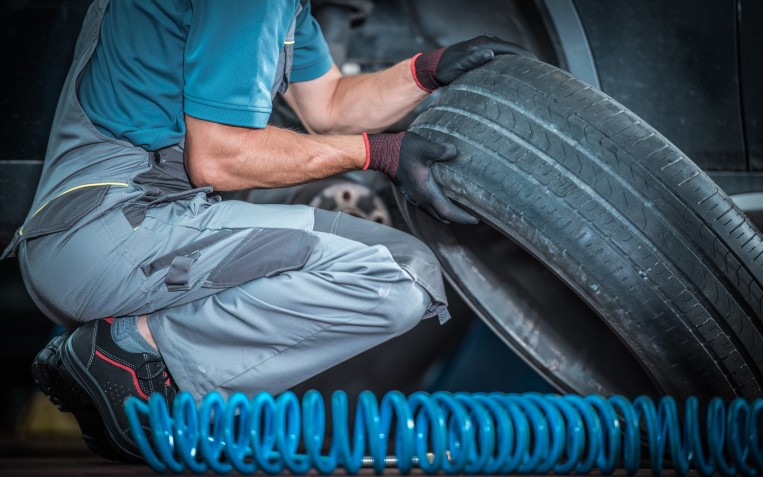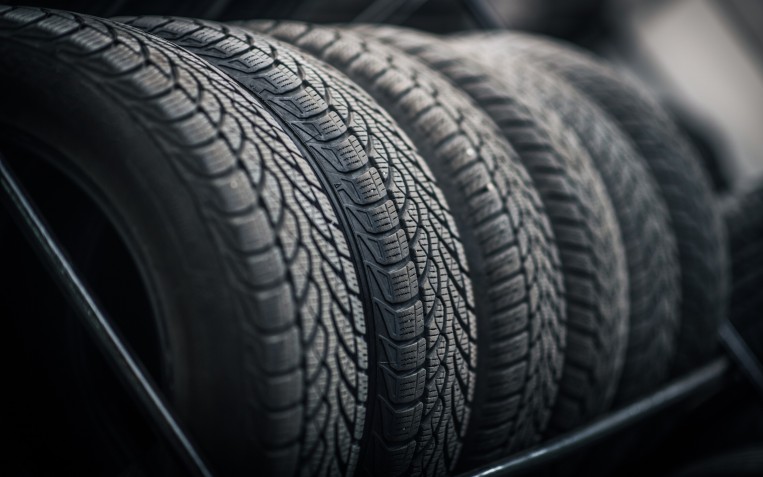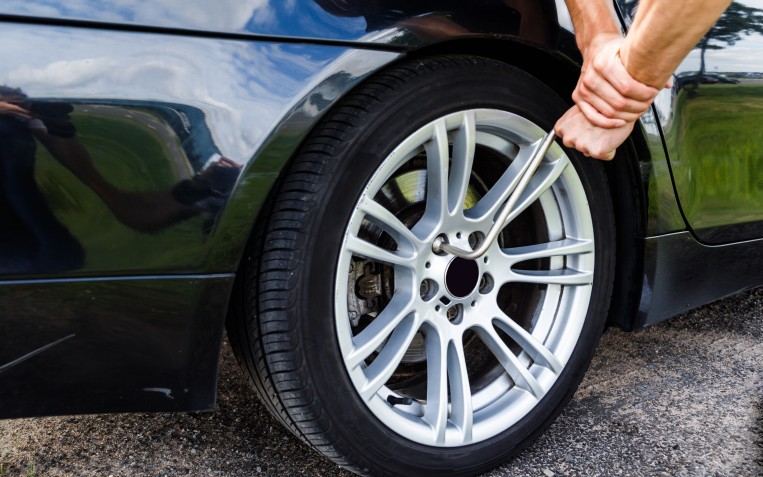Everything you should know about storing tyres safely

As the weather switches from warm and sunny to cold and rainy, it's not just our raincoats and hats we need to think about, but our car tyres too.
Seasonal changes prompt some drivers to consider changing their seasonal tyres - so it's important to know about tyre storage for the set which are not in use. The way your tyres are stored has a significant impact on the lifespan, and eventually your pocket.
To assist, our tyre experts have put together this useful guide so you know how to store tyres in the correct way, and prevent damage in the months they are not being used.
What is the best way to store car tyres
Step 1: Clean
The first step when looking to store your car tyres is to ensure they are clean. This is a relatively simple and quick process and involves using a tyre brush, some detergent and water. You need to make sure any mud, brake dust or debris from the road is cleaned away. It's also important that they are then dried well ready for storage. Other products such as gloss or dressing are not required in this process as tyre compounds are already formulated to resist ozone cracking.
Step 2: Storage bags
It's a good idea to invest in tyre storage bags which can be bought online. Alternatively, find some clean, dry airtight bags which can be utilised for each tyre.
Once the tyre is in the bag, you can either use a vacuum to remove the air and make sure it is as airtight as possible, or wrap them as tightly as you can, sealing with tape to keep them shut. This process needs to be repeated for each tyre and, if done correctly, means they won't dry out or crack as it reduces the evaporation of the natural oil in the rubber of the tyre.
Step 3: Location, location, location
Location is key in how to store tyres long term. Important aspects to consider include:
- Keep them out of the sun. UV rays and heat will damage the rubber of the tyre.
- Keep them inside, not outside. It's important to make sure they are never stored outside.
- Keep them in a ventilated area. A cool, dry room will be the best place to store your tyres when they are packed away.
- Keep away from exposure to chemicals, such as fuels, lubricants and solvents.
Step 4: Store the right way up
There are three main options for how you can store your tyres once they are safely packed away.
- Upright
- Hanging on hooks
- Stacked on their side
The very best position is to stand them upright (vertically) as this puts the least amount of strain on the tyres.
However, if they are still on their wheels, the best way to store these will be to stack them, or hang on hooks. It's important to ensure that you don't stack them too high - as if they were to fall over, this could cause damage or scuffing to the tyres and wheels.
How to store winter tyres and summer tyres
It's worth noting that storing summer or winter tyres follow the same steps as above, and there is no difference in the process to keep them lasting a long time.
If you want to find out more about having different tyres on your car, read our handy guide.. Alternatively, if you are unsure about if you should be replacing your current or stored tyres in pairs, learn more now.
Contact your local PTA Garage Services if you require further guidance or want your stored tyres checked by one of our specialists before you get them fitted for the new season.
Related Content

What do different tyre tread patterns mean?
The tyre tread is the part of your tyre that makes direct contact with the surface of the road. Tyres have different types of tread patterns that can influence tyre wear, noise level, fuel consumption rate, driving comfort and handling traction &ndas...

Tyre Size Guide
Understanding tyre size Understanding the size of your tyre can be confusing. Typically, you can find the correct tyre size for your vehicle us...

How to change a tyre
Knowing how to change a tyre is an essential skill - even if you never want to use it! You can save both time and money by learning how to change your...

